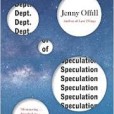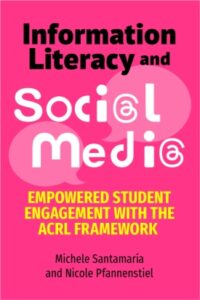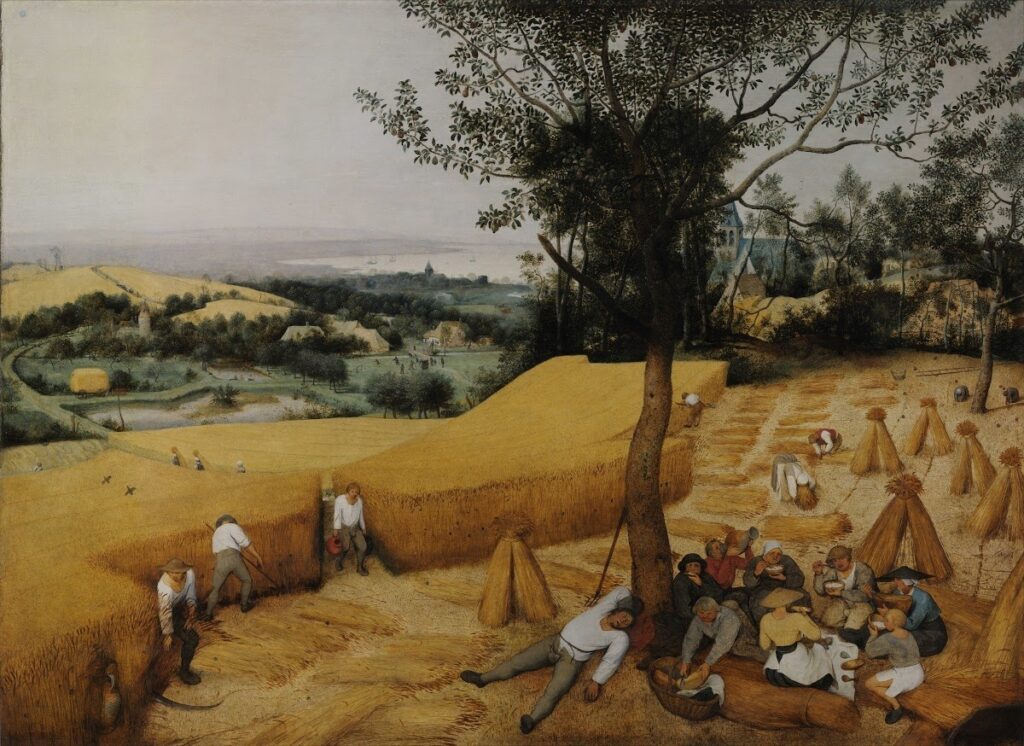I felt really sad when I read Kyle Shockey’s post on the Librarian Burnout blog about feeling burnout after library school and being in the midst of the job hunt. By all indications, he is one of those rare recent grads who followed the advice so many of us give to LIS students — don’t rely solely your LIS program to prepare you for the profession. He published, presented, worked, volunteered, and even won awards while still in library school! How many of you did all that?? And yet he found that not only was it all mentally and physically exhausting and not encouraged by his LIS program (shame on you LIS faculty!), but he’s discovered that it didn’t lead to the job he thought he’d get if he did all the right things. Horrible.
I remember my own first library job search like it was yesterday. A lot of it was chronicled on this blog, but I tried to stay upbeat in my writing because I didn’t want to hurt my chances of getting a job by being negative. By Spring of 2005 (I graduated in December 2004), I was starting to think that I needed to look for jobs back in my previous field (social work) because I was clearly not seen as a promising librarian by anyone. Thinking about that time in my life even now gives me a sick feeling in the pit of my stomach. It was really that traumatic. So I feel viscerally bad for anyone going through that.
Unlike Kyle, I didn’t find library school exhausting (probably because, with a few small exceptions, I did rely on my LIS program to prepare me for the profession), but I found the job hunt isolating and demoralizing. The whole process feels like is designed to make people feel like there is something inherently wrong with them, and some have suggested that the system supports the idea that you’re out of work and searching for a job because you are flawed. For folks who already have depressive tendencies, it is all too easy to believe that the problem is you and that the problem is unfixable.
It’s easy to just say “wow, that sucks” and move on with your professional life, but there are things each and every one of us can do to make library school and/or the first professional job hunt less of a soul-crushing experience for others:
- If your library is hiring for a position that doesn’t strictly require professional experience for the person in the position to be successful, don’t require it. It doesn’t mean you’ll definitely hire a fresh-out-of-school librarian, but it opens you up to finding an extraordinary candidate who doesn’t have professional experience. I remember at my last job, we were going to be hiring some one-year temporary reference and instruction librarians to cover a bunch of people leaving and a retirement. They seemed like perfect positions for just-graduated librarians to earn a little experience doing instruction, reference, and collection development, but one of our administrators insisted that we ask for several years of experience. His main argument was that, because we’re in Portland, we’ll get plenty of applicants with the requisite experience. So depressing, but sadly not uncommon. When you’re thinking of requiring a few years of experience because it will give you fewer cover letters to read, remember that you are also limiting the options for people who need library jobs most.
- When someone is interviewing for a position at your library, be humane, be kind, and remember that the impression they get from your actions is at least as important as the impression you get from them. You are representing the library and, unless you hate working there, you should work to give the candidates a positive impression of your workplace. Treat the job candidate as you would any valued member of our profession. I remember interviewing for my first professional position at a well-respected library that treated me terribly during my interview. In addition to many small things, they made me prepare and give THREE separate presentations during my day and made me choose the restaurants at which we had lunch and dinner (which felt very much a test of my coolness or interest in the cuisines of other cultures). During dinner, they pretty much just talked amongst themselves and didn’t include me in the conversation or ask me anything about myself. Years later, when I had built a positive reputation in the profession, someone there suggested I apply for a job they had open. Based on my experience, there is NO WAY I WOULD EVER BE WILLING TO WORK THERE. I even know and like people who work there now, and yet I still think of the place as a toxic snake pit based on my experience 11 years ago. First impressions matter, even when it might seem like the person you’re interviewing really doesn’t matter.
- If you’re an experienced librarian (and I don’t mean a decade, even a little experience is great!) mentor or micro-mentor a new librarian. The support and encouragement I got from a few librarians towards the end of my job hunt saved my bacon. One person basically tore apart my cover letter and resume and helped me rebuild them so they didn’t suck and played up the value of my previous experience as a social worker. Suddenly I was getting second interviews at just the sorts of places I’d hoped to work. Soon I had my first professional job. But it was more than just the feedback on my resume and cover letters that helped. That successful people in the field believed in me and were willing to help me (even in small ways) was hugely encouraging. Why would they want to help me unless they saw something worthwhile in me? As someone who has served as a mentor, I can tell you that it doesn’t take a lot to be one. You just have to care about people and maybe have a little more experience (in some areas, not all) than the person you’re mentoring.
- Develop programs locally that support new librarians (because not everyone can afford to attend ALA). Does your local, state, or regional library association have a resume review program or an early-career librarian mentoring program? If not, maybe it’s worth building one. When I asked at my first Oregon Library Association Conference if there was a mentoring program for new librarians, I quickly found myself swept up into the Membership Committee and creating a mentoring program from scratch with another interested librarian. Our program started matching its first pair of mentors in May 2013 and has matched around 60 mentoring pairs since. It is one of the things I’m most proud of in my career. In collaboration with the head of the OLA New Member Round Table, we’re expanding the program to offer a Resume and Cover Letter Review program to meet the needs of OLA Members who just need short-term mentoring focused on the job hunt. ALA/NMRT offers a great online resume review service, but I really like the idea of having people interact with folks who know the local library scene (since most people in Oregon seem to want to stay here). While I’m a big believer in informal mentoring, there are so many people who don’t have the political or social capital to find a mentor themselves, and I want to make sure those folks have just as much of an opportunity for mentoring support as I did way back when.
- If you have an LIS intern, you really should focus on making the internship a good learning and growth experience for the student. I had an archives practicum where I was basically given boxes of (really freaking boring) university records and told to process the collection and create finding aids. I didn’t get any support on how to do it and was pretty much left to my devices the entire time. The experience convinced me that I didn’t want to be an archivist, but, for all I know, I might have loved the work in a less sucky setting. Supervising an intern is more than just about giving them work to do. It’s about teaching them about the setting you work in, giving them meaningful experiences and interactions, and mentoring them as they learn the role they’re in. Erin at Constructive Summer suggest that we pay our LIS interns, but that isn’t always possible. The least we can do though is make it an amazing learning and networking experience for them.
- If you work in a library school, you should constantly remind yourself that your goal is to help your students get jobs. You should make sure your curriculum is helping students develop the skills and real-life knowledge that will help them be successful in the field. Keep what you’re teaching up-to-date and focused on real-life problem-based learning. If students do the sorts of extra things Kyle did, you should encourage them and give them reasonable work extensions. In a professional program, what will make a student marketable really should take precedence. As an LIS instructor, I can’t imagine penalizing or not offering flexibility to a student who is presenting at a conference!
- In the big picture, we should advocate to decrease the number of people going into LIS programs. It’s obvious that there are way more people graduating with the degree than there are jobs, even when you consider positions outside of libraries in which the MLS is a valuable credential. Instead of discouraging potential graduate students, we should find ways to push programs that do not have exceptionally strong placement stats into decreasing the number of students they accept. ALA isn’t going to do this work because it goes against their interests, so it’s deeply problematic that accreditation of LIS programs happens through ALA. Maybe that needs to change. I don’t have answers to all this, but I know what we have here is deeply problematic.
Individually we probably can’t change these big systemic problems, but anyone can help individual librarians and I’m proof that little things people do to help do matter. It doesn’t take much to be kind, share our experiences, be encouraging, and be helpful to a new librarian. That the first job hunt is demoralizing and painful shouldn’t be seen as a normal rite-of-passage for librarians. We can make things better.
And Kyle, where you are now sucks epically, but things usually do get better. And, given what I’ve seen from you on Twitter, you are absolutely meant to be a professional librarian.







I’m not sure I see the connection between accreditation and over-supply. There are plenty of unaccreditated programs that also contribute to the workforce supply as well as people who are hired without an MLS. I don’t know of any accrediting body that is active in decreasing supply. The goal should be increasing quality.
You’re probably right. I guess it would be more of an issue for the ALA, much like the AMA did with restricting the supply of doctors (maybe too much it turns out). What frustrates me is that I don’t see any professional organizations really focusing on this issue, and when people talk about the first job search being so inhumane, the conversation tends to be “yeah, it was horrible when I got out of library school too” like we should accept it. We shouldn’t. We can all do little things as individuals, but it feels like we need systemic change here.
I don’t disagree with the need to take a hard look at the way we treat the hiring process and would add to recruitment concerns about retention and promotion. I don’t think LIS program accreditation is the issue causing the problems nor a solution to them. Nonetheless, I hope you have seen that ALA has charged two task forces on accreditation just this past month: http://americanlibrariesmagazine.org/blogs/the-scoop/task-forces-on-lis-accreditation-announced/
Good reminders about thinking about how we craft position requirements and how we conduct interviews. I also agree about a strategic focus on field experiences and making them valuable both to the student and the library (and communicating their value to both back to the LIS program, a link in the chain that I have often found to be broken). I am interested by the idea of communicating placement information – that’s been a call in a number of other areas of graduate education, and there is probably very useful information to be had and shared about the placement experience of recent graduates (an issue that has also come up in legal education, another area of professional education that has seen significant drops in enrollment over the past few years). I know ALA isn’t the hero of your piece, but public information regarding placement is something that could be required as part of the accreditation process. I don’t believe that is the case now, but perhaps one of your readers on COA can correct me? Illinois appears to have done a one-shot review of the 2013 cohort and their information is at (https://www.lis.illinois.edu/careers/employment-report)
That’s a great point Scott! It seems like LIS programs should have to collect data on placement rates (since that is one of many measures of the quality of their programs) and making those publicly available would be extremely helpful to those considering whether or not to enter the field and where they might go.
Meredith, you have a lot here for everyone to think about and comment on. I, though, want to comment on one specific job opportunity for those with an MSLIS degree.
in NYS there are more jobs available for MSLIS graduates who have a school media specialization than grads to fill the positions. Most students, who are working on the specialization, obtain jobs before they graduate, We frequently get calls/emails from districts – in NYS and elsewhere – who need someone.
An MSLIS student who specializes in school media can work in any type of library. Some choice not to go into school media and some switch out after a few years in a library. However, every person with that degree and specialization has a high chance of getting a good paying job in a K-12 school and having a worthwhile career.
So here’s the question. If prospective students want to work in libraries, how do we get more of them to consider K-12 libraries?
That’s a tough one, Jill, simply because there are such geographical differences in terms of which areas of librarianship are most likely to lead to a professional position. In my state of Oregon, as well as in many other states, K-12 librarian jobs are disappearing and it is one of the most difficult areas in which to find a professional position.
It seems like it would be helpful for a professional organization (ahem, ALA) to provide information like this — state and regional job outlooks that could provide valuable information to prospective librarians. They could share state-by-state information on types of openings and salary ranges in recent years and so a prospective librarian could see that if they want to live in Oregon after graduation, becoming a K-12 librarian may not be the best idea, but if they want to work in NY, it’s a brilliant plan. It seems like ALA would have the resources and connections to do that kind of research and the value of it would be immeasurable.
Meredith, since ALA isn’t the ultimate job site for all library positions and since ALA is understaffed (or so I think), having ALA collect job ad statistics would be difficult. However, I do think that collecting that type of data would help all of us. It could make a good collaborative grant application. (Collaborative because I can’t envision one organization taking it on by itself.)
I don’t know. ALA isn’t the ultimate job site, but it collects more ads than any other single organization. I feel like ALA funds what it values, and it doesn’t seem like it has placed a very high premium on helping new librarians find jobs (I mean they just added a new Center for the Future of Libraries so they are expanding in some areas). I think this is something ALA could head up, given their relationships with library schools and state library associations. I could see them collecting data every other year from LIS schools (via accreditation perhaps) and state library associations about the job outlook in their area and placements. Also, let’s remember that ALA is us, and they could form committees around this work and not just rely on their paid staff.
I agree with most of what you’ve laid out here, Meredith–thanks for highlighting these issues. I would really like to see more LIS programs provide placement data, and for faculty to really stress how difficult it is to find a job in certain markets. That guidance needs to happen right away in the program, and we need to include more opportunities to learn about alternative careers (plus get matched with fieldwork/internship opportunities). I went to school in Seattle, which is knee-deep in unemployed and underemployed librarians, and while I love it there, I knew my odds of getting a good position there were poor. That isn’t always true everywhere. I will say that here in Wyoming, some of our searches fail because we can’t get enough applications (sometimes we’re overwhelmed–it’s hard to predict).
As for the K-12 school media shortage, I didn’t consider it because there was no way I was going to get a post-bac teaching credential and have to do student teaching before I went to library school. For me, the time and financial costs were too high. That route seems to work best for people who are already credentialed teachers looking for a career change.
YES! Placement data would be so helpful to prospective LIS students. They deserve to know what they’re getting into. I feel like if library schools in places like Seattle and Portland are not telling their students that their chances of getting a job in the city are quite slim, they are committing malpractice. I see so many students graduating from the Emporia satellite program in Portland and most do not find full-time professional work.
I’ve been very impressed at San Jose State how much they have focused on educating LIS students about alternative careers. I agree that this is so critical, because there are interesting alternatives to working in traditional library settings and I’ve seen some folks who took my classes graduating and going on to doing library-ish work outside libraries.
Vermont was very much the same as Wyoming. Sometimes inundated with applications, sometimes with very few viable candidates. I really appreciated when I worked in Vermont that my boss was willing to let new grads into most of the job pools because she wanted to find the most promising candidate (not necessarily the most experienced) and help develop new talent. I partially owe my career to her attitude.
All of this fits into what I am trying to work on in my spare time a project entitled So You’re a Librarian, Now What!?! There are many who come out of school with little experience and little idea of how to give themselves a chance for that first job. We must do better and as Kyle says we must advocate for not only our profession but our peers! Soft skills matter, they should be a competency of graduating from library school! How to interview, do you mock interview with mentors who hire folks? etc.
Good stuff I have a lot to think about and to add to what I am trying to put together after this.
I guess in closing as much of what I have to say has already been said to others is that if you are a new librarian and struggling with your job search reach out for help. We as professionals need to do better and I will do my part by saying if you want somebody to talk to, look at a resume, share their experiences with etc. you can reach out to me on Twitter @the_info_ninja and I am glad to take some time to try to lend a hand.
All god points, but let me play my broken record here, to….we have to stop selling the MLS career to ONLY the public and academic arenas. My own LIS school (which was amazing in all other regards) sold special/corporate/NGO/etc short, as well, usually with the line of “Oh, corporate jobs are icky.”
I try to mentor a lot of the LIS students in the area who come to me, and most seem surprised that they’ve never heard of SLA. It’s a cycle. I’ve also interned a lot of librarian in my past non academic jobs…because I felt they should all have an opportunity to see what else is out there.
Now that I’m back in the academic world, where our budgets are cut, and no department can hire many FT people, I feel frustration on all sides.
But I don’t just blame LIS Schools out there for not preparing grads. I think we need to remember our profession is HUGE and not to silo it so much, even among the long time MLS holders.